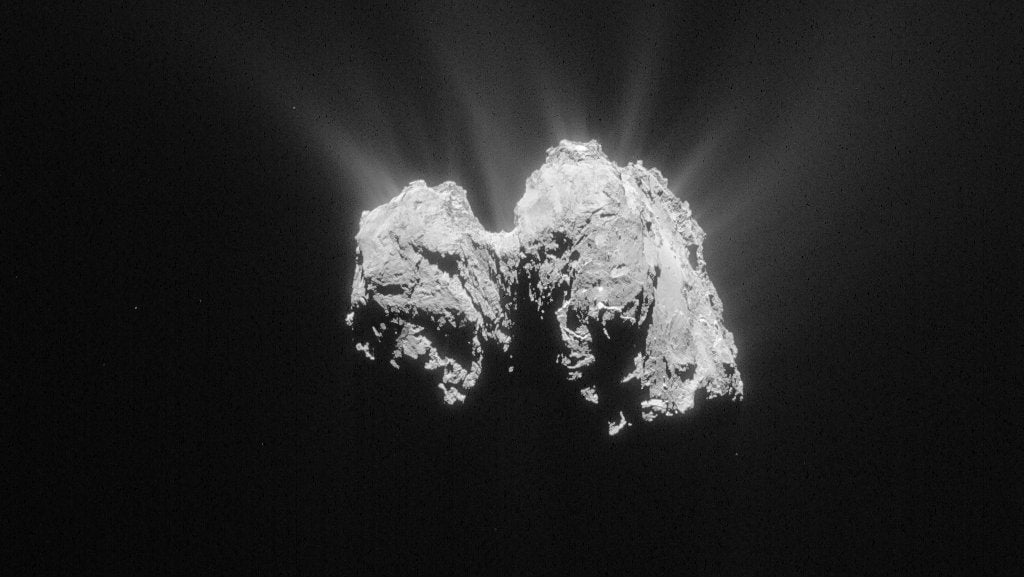Finding oxygen on a comet changes what we know about the birth of the solar system
The Rosetta space probe landed last year on Comet 67P after taking 10 years to make the 4-billion-mile trip to get there. Researchers have now found oxygen on its own in the cloud of gas surrounding the comet, which they describe as “the most surprising discovery” yet.


The Rosetta space probe landed last year on Comet 67P after taking 10 years to make the 4-billion-mile trip to get there. Researchers have now found oxygen on its own in the cloud of gas surrounding the comet, which they describe as “the most surprising discovery” yet.
The remarkable findings, detailed in the journal Nature, challenge the ideas scientists currently have of how our solar system formed. “When we first saw it, we went a little bit into denial because it is not what you would expect to find on a comet,” Prof. Kathrin Altwegg, from Bern University, said at a press briefing. “All models show that molecular oxygen will react with the hydrogen and will no longer be present.”
Rosetta’s ROSINA (Rosetta Orbiter Spectrometer for Ion and Neutral Analysis) found water vapor, carbon monoxide and carbon dioxide—and molecular oxygen. According to current models of how the universe was formed, oxygen as a compound on its own should have disappeared before Comet 67P was formed. Altwegg and her team didn’t think oxygen could “survive” for billions of years in space without combining with other substances.
Most models suggest a violent beginning to the universe as we know it. If oxygen predates the start of the birth of the solar system, it suggests that the comet formed so gently to build ice grains that eventually became incorporated into the comet. It might have never gotten hot enough to heat up the frozen oxygen, and spark other reactions.
After seven months of observations, researchers were confident that the results were not a mistake. Oxygen levels were higher when the spacecraft was closer to the comet, but levels dropped when the spacecraft was farther away. But how did it get there?
Researchers aren’t sure, but they suggest the oxygen must have been present before the solar system was formed about 4.5 billion years ago. “This evidence of oxygen as an ancient substance will likely discredit some theoretical models of the formation of the solar system,” Altwegg said.